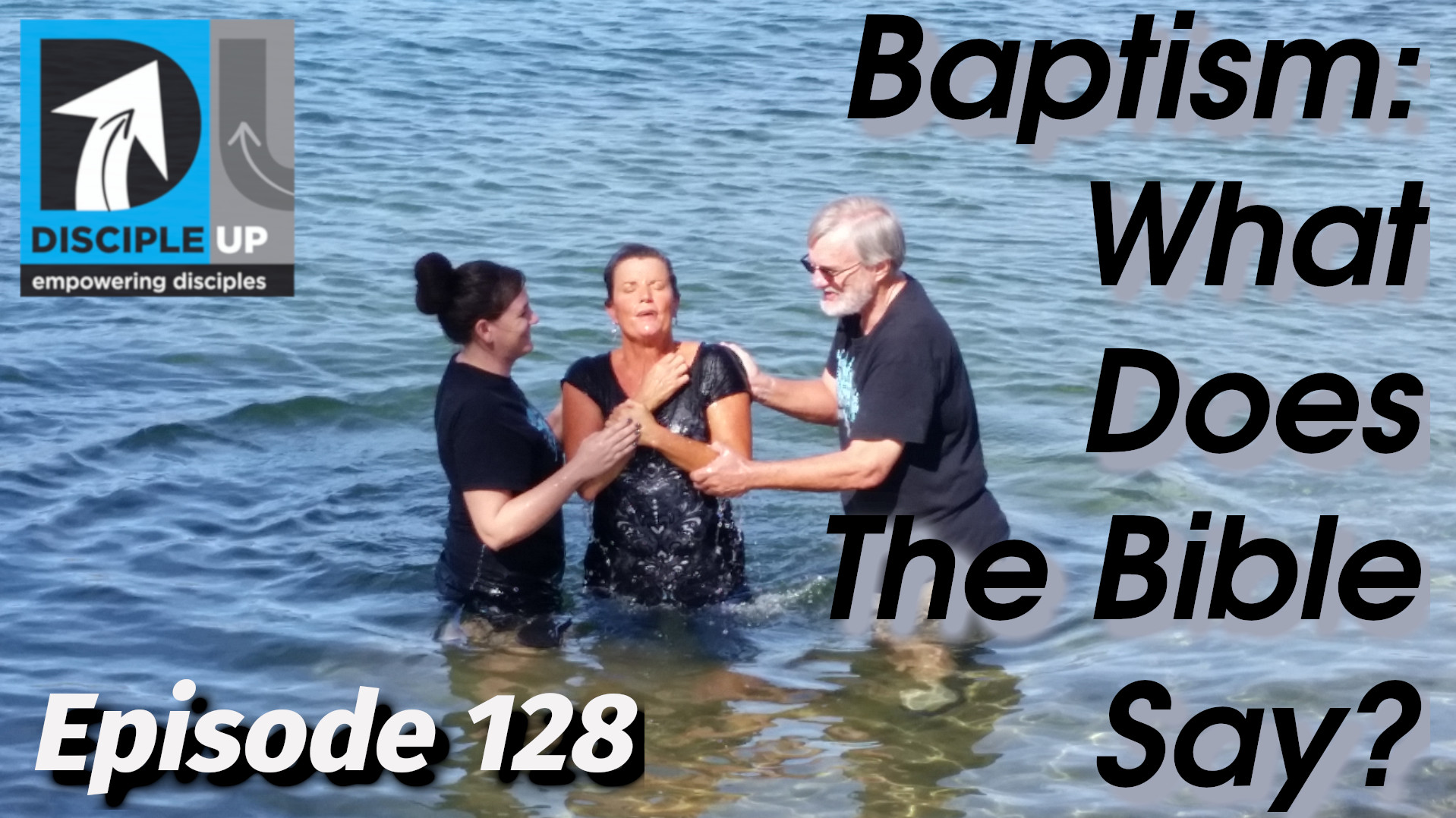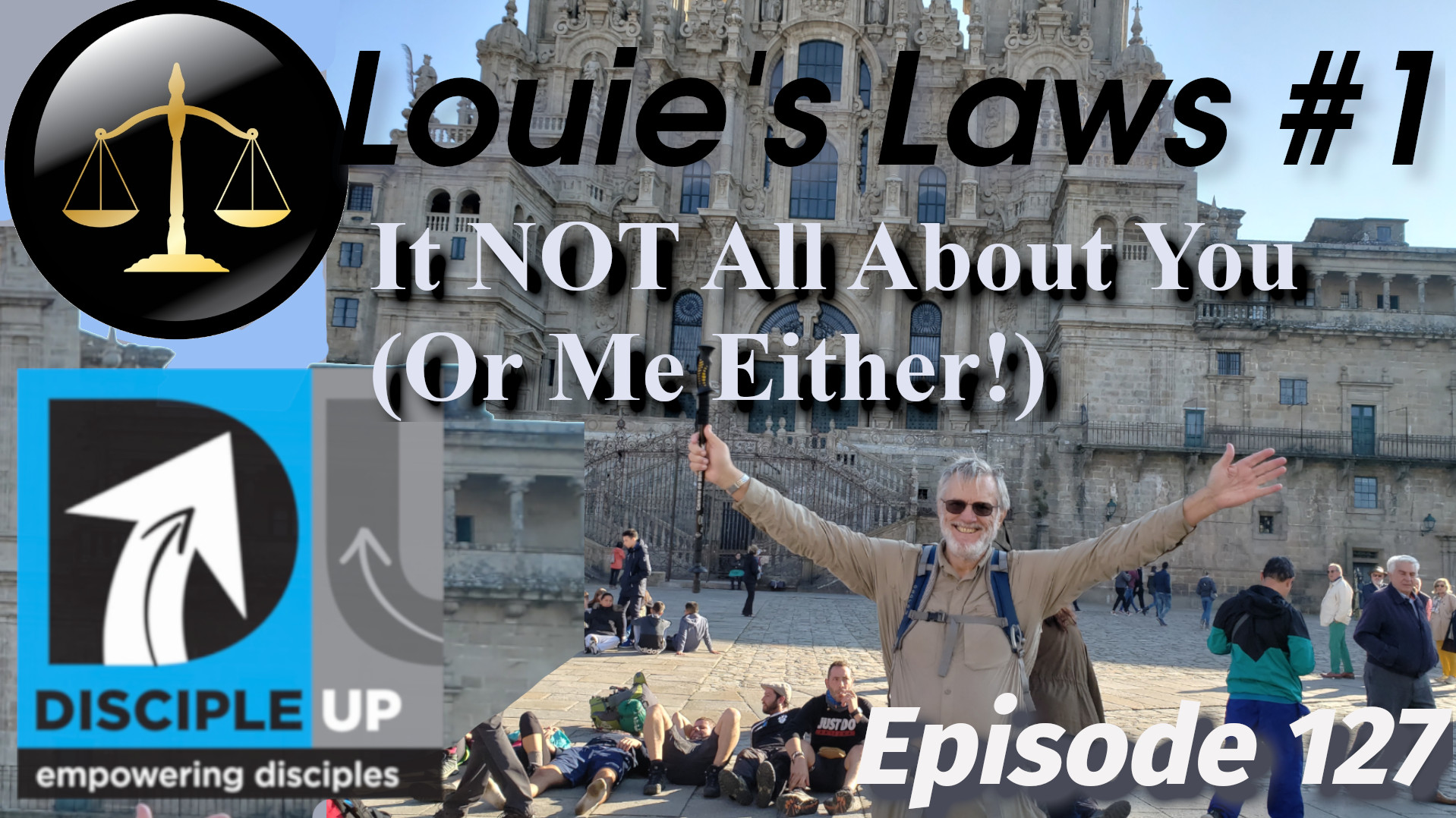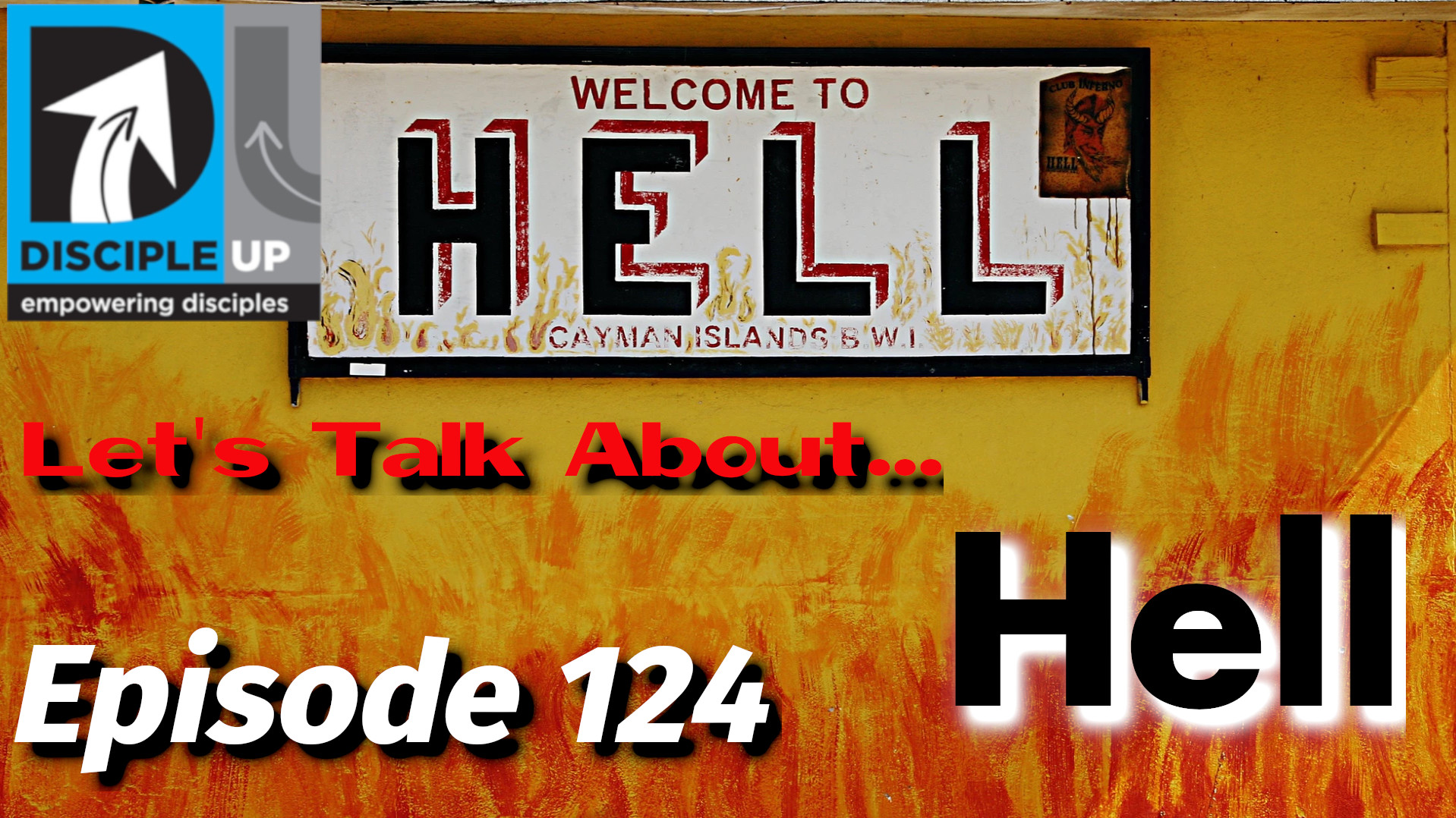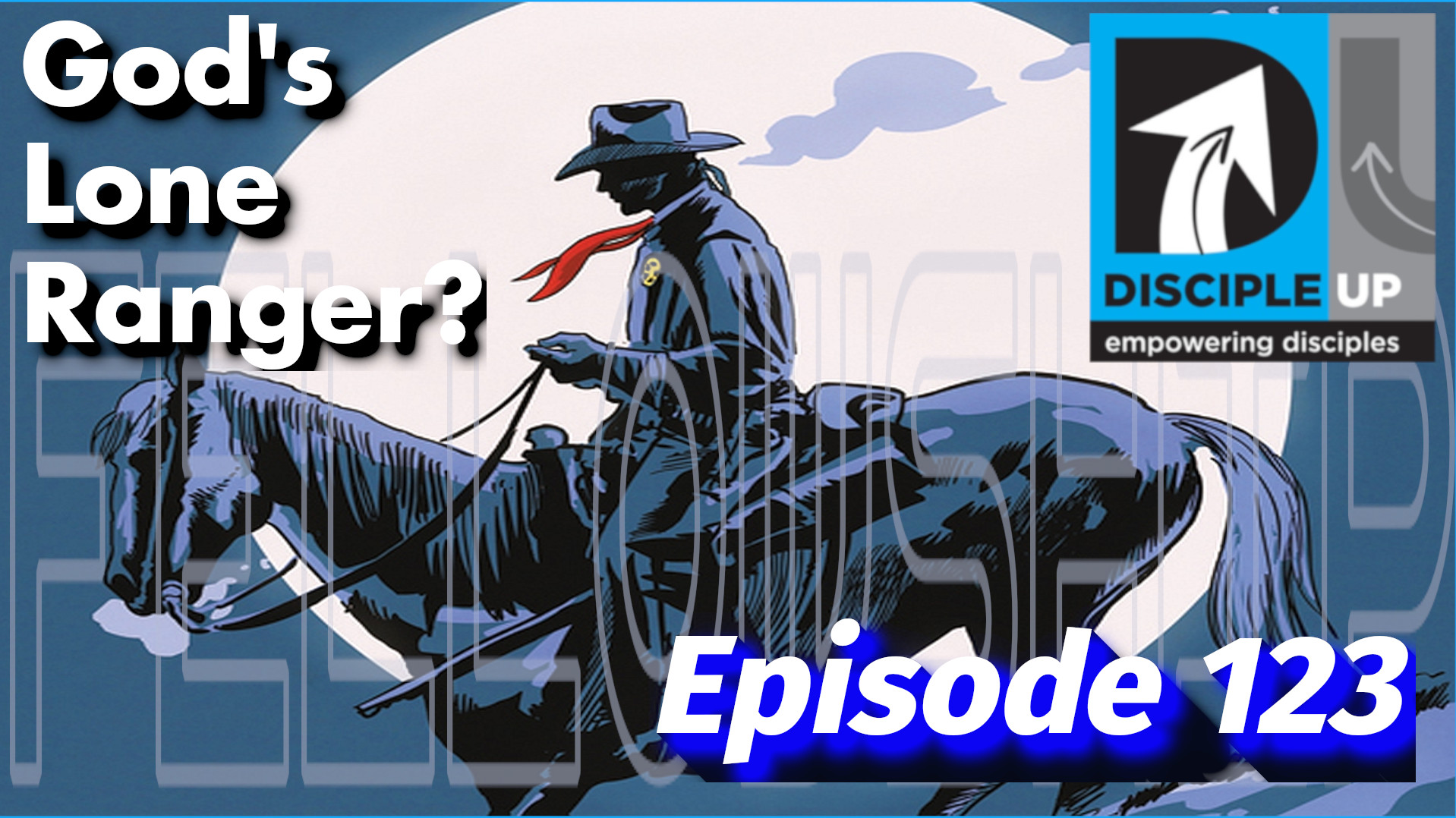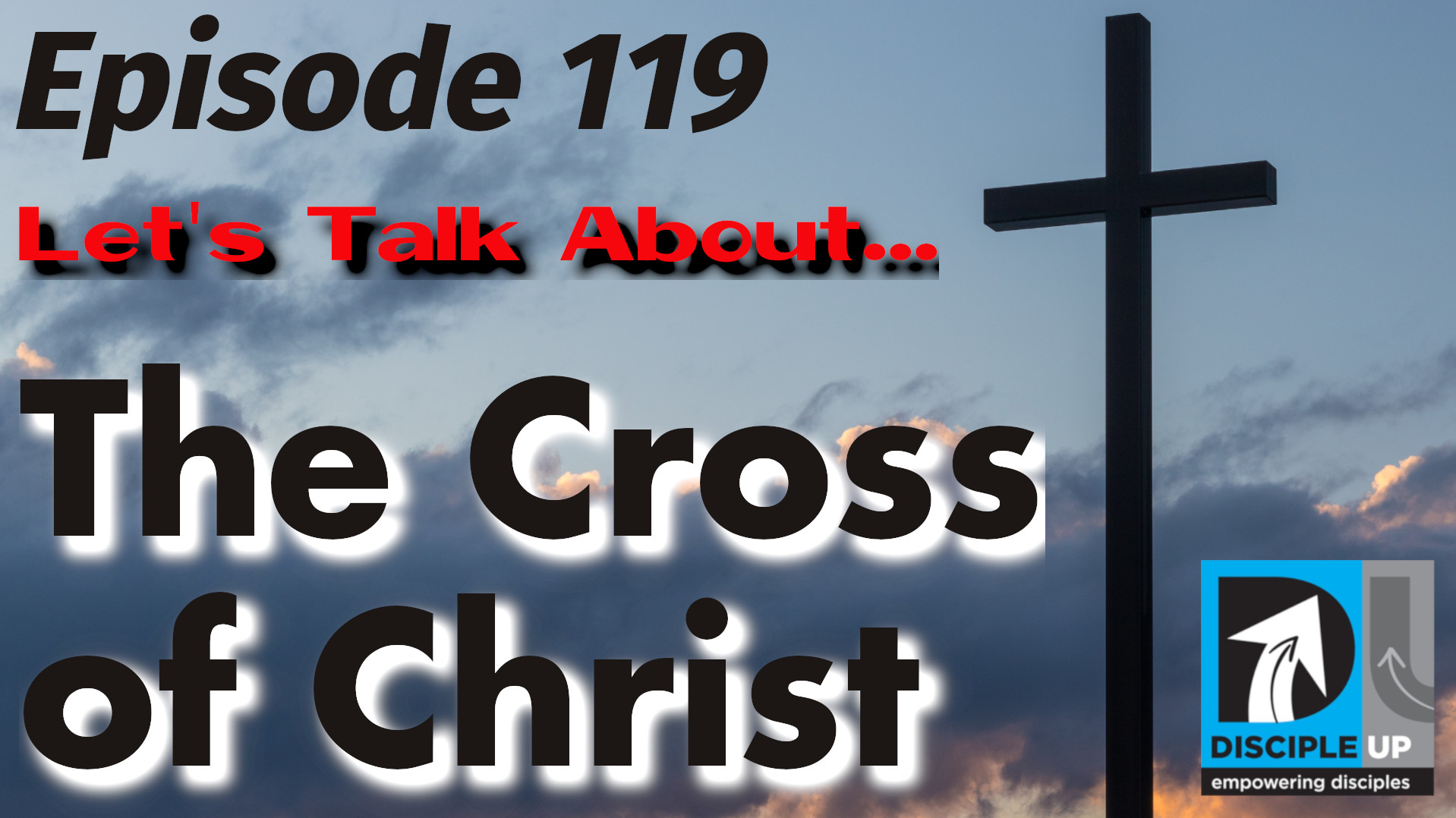Disciple Up # 128
What About Baptism?
By Louie Marsh, 10-2-2019
Introduction:
The subject of baptism today is in much the same position that a lot of people are when they get married – it comes with a lot of baggage attached! And like most of us, that baggage isn’t good news!
This short essay on baptism isn’t intended to answer all the questions and objections and opinions that have accumulated about baptism in 2000 plus years since Christ commanded us to both be baptized and to baptize others. Rather it is intended to be a simple survey of what the Bible actually says on the subject, designed to bring us to obey what Christ and His Apostle’s have clearly told us to do.
Obtuse theological and philosophical questions will have to be pursued elsewhere by others as I am neither interested in any of that nor do I have the time to waste. I’ll bet you’re the same too. So let’s plunge in and see what the Bible teaches us.
What It Is:
The starting point for any discussion of baptism ought to be what the word is and means. Right here we discover the first reason people are confused about it – it’s a Greek word! That’s right, baptism isn’t English at all! It’s a transliteration of the Greek word baptizio.
What’s transliteration? Instead of translating a word into English, Bible translators simply bring the letters of the Greek word into English! So baptizo becomes baptism! They did the same with abba by the way, the word transliterated abba in Mark 14:36, Romans 8:12 & Galatians 4:6.
Why would they do that? Because they are afraid to offend people by translating the word that’s why! Abba is the common Aramaic word that children use of their father’s in intimate settings. Everyone agrees it ought to be translated, “Daddy,” but few translations have the courage to do so.
Translators faced the same issue with baptize. Imagine what King James and the church authorities would have done over 500 years ago if that version of the Bible had come out telling everyone to be immersed into Christ! Since the English church then, and now, doesn’t immerse members. Things would have gotten ugly pretty quickly!
Baptism is the normal Greek word for immerse, dip or plunge. They had other words for sprinkle or pour, just as we do in English. It was used of ships sinking, of dipping a cloth into dye to change the color, etc.
No scholar today would argue this, and in fact all the great church leaders of the past clearly stated this was so – even when their own church traditions and practices didn’t conform to the Biblical command!
Martin Luther (founder of the Lutheran Church and the one who began the whole Protestant Reformation) said, “I would have those who are to be baptized to be entirely immersed, as the word imports and the mystery signifies.”
John Calvin (a younger contemporary of Luther, the Presbyterian and other churches look to him as a founder) said, “The word “baptize” signifies to immerse. It is certain that immersion was the practice of the ancient church.”
John Wesley (founder of the Methodist Church) said, “Buried with Him, alludes to baptizing by immersion according to the custom of the first church.”
What The Bible Say About This:
So while the meaning of the word is clear, is there any support for this in Scripture? The answer is yes, there are several passages that make it clear that baptism is immersion.
What shall we say, then? Shall we go on sinning so that grace may increase? By no means! We died to sin; how can we live in it any longer? Or don’t you know that all of us who were baptized into Christ Jesus were baptized into his death? We were therefore buried with him through baptism into death in order that, just as Christ was raised from the dead through the glory of the Father, we too may live a new life. If we have been united with him like this in his death, we will certainly also be united with him in his resurrection. Romans 6:1-5 (NIV)
After reading that passage over it’s clear that it only makes sense if baptism is immersion. Otherwise the whole metaphor that Paul is using falls apart. He speaks of being buried with Christ in baptism. Well how do you bury someone? Then as now the dead were buried by putting them under the ground! So when you are lowered into the water it’s a picture not only of Christ’s death and burial, but your own death to sin through your faith in Him.
When you are raised up out of the water you have the perfect symbolic picture of Christ’s resurrection, and our own spiritual resurrection in Him as we are born again. Sprinkling or pouring destroys the beauty of this symbol.
In the book of Acts there’s a great story of Phillip being sent by the Lord to share the Good News with the Ethiopian eunuch. After he presents the Gospel from an Old Testament passage, look what happens.
As they traveled along the road, they came to some water and the eunuch said, “Look, here is water. Why shouldn’t I be baptized?” And he gave orders to stop the chariot. Then both Philip and the eunuch went down into the water and Philip baptized him. When they came up out of the water, the Spirit of the Lord suddenly took Philip away, and the eunuch did not see him again, but went on his way rejoicing. Acts 8:36-39 (NIV)
If baptism can be done by pouring or sprinkling why did they have to wait till they found a body of water and then go down into it? Why not use stop and use some water from a water bag they surely had on hand?
The evidence is clear and overwhelming, baptism is to be done by immersion!
Who Should Be Baptized?
Jesus made this about as clear as it’s possible to make anything at the end of His Ministry in the Gospel of Matthew.
Therefore go and make disciples of all nations, baptizing them in the name of the Father and of the Son and of the Holy Spirit, and teaching them to obey everything I have commanded you. And surely I am with you always, to the very end of the age.” Matthew 28:19-20 (NIV)
This is called the Great Commission and is repeated in various forms in Mark 16:15; Luke 24:47; John 20:21 and Acts 1:8.
Jesus expected all those who put their faith in Him as their Leader and Forgiver (Lord and Savior) to be baptized as part of becoming His disciple. This is clear as crystal from this command. Remember this is a command, not a suggestion! Baptism isn’t optional because it’s part of Christ’s very commands to His Apostles before they launched out on their mission to bring salvation to the ends of the earth!
If that’s true, you would expect to see the early church in the book of Acts follow this pattern. And that’s exactly what they did. When you study the Bible you find that the normal pattern for people coming to Christ involved hearing the Gospel, believing it, turning away from their sin (repenting) confessing their faith in Christ to others, being baptized into Christ. Often they are then called saved.
Look at the chart below to see how often these important factors are mentioned in the book of Acts as Luke, guided and inspired by the Holy Spirit, recorded the major or historically noteworthy conversions in the early history of the church.
| Conversion Chart From the Book of Acts | |||||
| Heard | Believed | Repented | Confessed | Baptized | Saved |
| Pentecost
2:22-41 |
Vs. 37 | Vs. 38 | Vs. 38.41 | Vs. 41 | |
| Samaria
8:4-15 |
Vs. 12 | Vs. 12-13 | |||
| Eunuch
8:26-39 |
Vs. 36 | Vs. 38 | Vs. 39 | ||
| Saul
9:1-9 |
22:10 | Vs. 18 | 22:16 | ||
| Cornelius
10:1-48 |
Vs. 43 | 11:18 | Vs. 48 | 11:1 | |
| Lydia
16:13-15 |
Vs. 14-15 | Vs. 15 | |||
| The Jailer
16:25-34 |
Vs. 31,34 | Vs. 30 | Vs. 30 | Vs. 33 | Vs. 34 |
Interesting isn’t it? The only thing that’s mentioned in every conversion (except belief) occurrence is baptism! That’s probably the exact opposite of what most of us would expect, yet that’s precisely what we find in God’s Word.
This is called Believer’s Baptism, and is what Christ taught and the early church practiced. The only people who were ever baptized in the New Testament where those who put their faith in Christ and became His disciples.
Some churches practice a “baptism of confirmation” for children. This ceremony is intended to be a covenant between the parents and God on the behalf of the child. This custom began about 300 years after the Bible was completed.
This is different from the baptism talked about in the Bible which was only for those old enough to believe. The purpose is to publicly confess your personal commitment to Christ.
So if your parent’s had you “baptized” in that way, you really weren’t baptized at all! You weren’t old enough to have faith in Christ, and you certainly weren’t immersed either.
Alright, so baptism is by immersion and it’s to be done by those who are putting their faith in Christ as their Forgiver and Life Leader. But what is it’s significance? Is it really important, or is it something I can let slide or avoid because it’s not important?
The Sign of the Covenant:
The important place that baptism holds in the life of the Christian is not only hinted at by how often it’s mentioned in the book of Acts, it’s spelled out by the Apostle Paul for us in a way that is often over looked because it’s tied into the Jewish heritage our Christian faith rests on.
See to it that no one takes you captive through hollow and deceptive philosophy, which depends on human tradition and the basic principles of this world rather than on Christ. For in Christ all the fullness of the Deity lives in bodily form, and you have been given fullness in Christ, who is the head over every power and authority. In him you were also circumcised, in the putting off of the sinful nature, not with a circumcision done by the hands of men but with the circumcision done by Christ, having been buried with him in baptism and raised with him through your faith in the power of God, who raised him from the dead. Colossians 2:8-12 (NIV)
Notice here again Paul uses the imagery of burial in connection with baptism. He also ties baptism into the ancient Jewish rite of circumcision, thus confusing a lot of Christians who don’t really understand what circumcision was in the Old Testament.
God established circumcision as the sign of His covenant with Israel before the Law of Moses. He gave it Abraham as a sign and as something that absolutely must be done if a man wanted to be part of God’s Community.
You are to undergo circumcision, and it will be the sign of the covenant between me and you. For the generations to come every male among you who is eight days old must be circumcised, including those born in your household or bought with money from a foreigner–those who are not your offspring. Whether born in your household or bought with your money, they must be circumcised. My covenant in your flesh is to be an everlasting covenant. Any uncircumcised male, who has not been circumcised in the flesh, will be cut off from his people; he has broken my covenant.” Genesis 17:11-14 (NIV)
There was no magic in circumcision, it didn’t take away sin, or suddenly make you a better person or do anything of the sort. It was simply a symbolic sign of the covenant God has established with Abraham, a symbol that was hidden from view by the way. So why does God make is so important that if a male child wasn’t circumcised on the eighth day he wasn’t part of God’s people?
Because God takes symbols seriously. He understands the power a symbol can have in the lives of not just individual people, but entire nations. If you don’t believe me just remember the Nazi Swastika, or the Hammer and Sickle, or even the Cross itself.
They can motivate, instruct, empower and help maintain a person or people through times of great stress. And this is true regardless of whether the symbol is for good or evil.
So God has always given His people symbols, the Old Testament if rife with them. In the New Testament there are fewer, but they are none the less powerful. Perhaps they are even more powerful for being so few.
The Lord’s Supper is a symbolic feast, and baptism is symbol too – a symbol of our covenant with Christ. It’s the one physical outward act that all believers are to undergo, and thus it unites us together.
Baptism is also different from circumcision in another crucial way, a difference that illustrates and celebrates what a wonderful covenant that all people have with Christ. Baptism is for everyone – both men and women!
You are all sons of God through faith in Christ Jesus, for all of you who were baptized into Christ have clothed yourselves with Christ. There is neither Jew nor Greek, slave nor free, male nor female, for you are all one in Christ Jesus. If you belong to Christ, then you are Abraham’s seed, and heirs according to the promise. Galatians 3:26-29 (NIV)
Salvation in Christ is offered to all, whether you are Jew, Gentile, woman, or man. It makes no difference because the Gospel is the power of God for the salvation of all! In Christ men and women have equal status before God as His redeemed children, with full access to his throne!
A Few Small Points:
People often ask, who can baptize me? The answer is any believer can! In fact I believe that Christians who lead people to Christ ought to be the ones who immerse them into Christ! What a glorious picture that makes, and in fact it’s right in line with the Great Commission.
People wonder if they were immersed at an earlier time, and have since fallen away from Christ, should they be re-baptized? Or perhaps you’ve grown a great deal since your baptism, and now understand the faith so much better. Shouldn’t you be baptized again?
The answers to these questions are simple. Baptism is done to brand new believers. If you had a sincere faith in Christ when you were immersed, then it doesn’t matter how ignorant you were or if you’ve fallen away since then. Just think of how many times you’d have to be baptized if a growth in knowledge or sin can sever that Covenant sign!
No, the only reason for being immersed again is if you really didn’t accept Christ as your personal Lord (Life Leader) and Savior (Forgiver) when you were immersed for the first time. This can be a hard question to answer confidently if you were baptized very young. So in the end, I say if it gives you peace and a clear conscience, go ahead and be baptized again. After all, it isn’t going to hurt you, only get you wet!
Looking At The Big Picture:
When baptism is approached from a simple Biblical point of view, a lot of the questions that commonly bother people are simply rendered unimportant. The exact meaning of baptism, does it forgive sins or is it simply a symbol? If it does forgive sins, when does it happen? When I’m going down, all the way down, coming up, all the way up? What happens if I’m killed in a car crash on my way to be baptized? What if I’m stuck in the desert and there isn’t any water?
I could go on but you get the point. The truth is baptism is the Sign of the Covenant, and the Covenant is a Covenant of Grace. So you don’t have to worry about all these silly questions.
Jesus never said, “Go and argue about every possibility of what baptism might, should or could be!” He said, “Go make disciples – and baptize them!” If you are baptized as a believer in the Name of the Father, the Son and the Holy Spirit, that’s enough. You can rest secure in your eternal home with the Father as you trust His Son to save you and His Spirit to carry you home.
So if you are a believer and haven’t yet been baptized – what are you waiting for?
Please Get In Touch!
Email – louie@discipleup.org

Check out the Disciple Up Facebook page:
My books –

